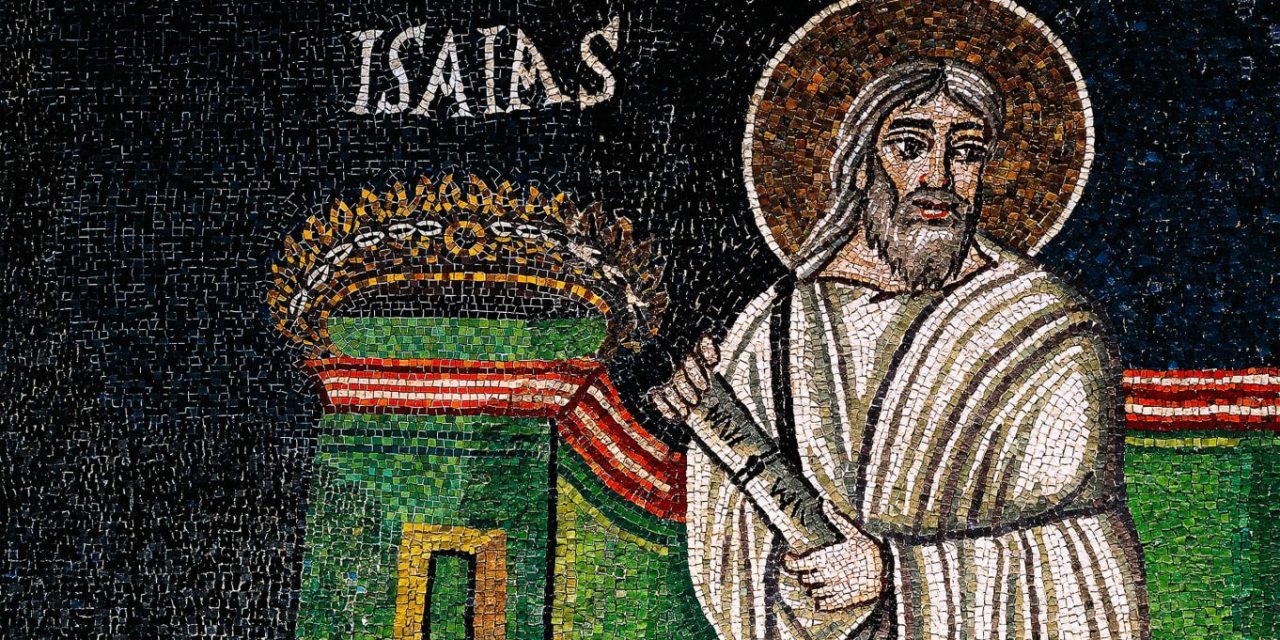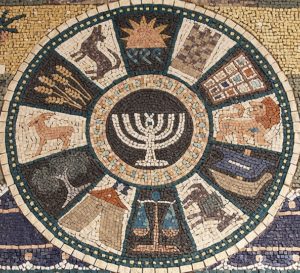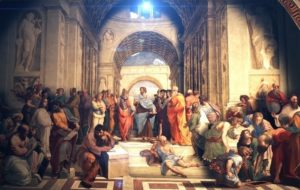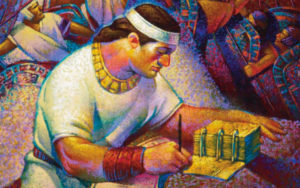Isaiah is difficult to understand. And when you start reading the Book of Mormon, you’ll come across Isaiah. Nephi and his brother Jacob love to quote this prophet to their people. There’s a reason.
When you get to the part of the book where Jacob reads Isaiah, Lehi has already died and Nephi’s people have separated from Laman and Lemuel’s group and departed into the wilderness. In 2 Nephi 6, Jacob begins to teach their people and reads from Isaiah (which was contained on the brass plates they brought with them.)
Jacob speaks to the people of Nephi
Jacob tells the people of Nephi —“ye are of the house of Israel” (2 Ne 6: 5) (Lehi’s descendants). Which brings up a few questions that will help us understand Isaiah:
- Who is the House of Israel?
- Who are the Gentiles?
- Why do Jacob and Nephi read Isaiah to their people?
Who is the House of Israel?
So who belongs to the House of Israel besides this group of Nephites? It’s important because Isaiah talks a lot about the House of Israel. These are the people that make up that group:
- Jews (called the house of Israel or a remnant of the house of Israel) (1 Ne 15:17)
- Lehi’s descendants (the people who left Jerusalem with Lehi – they are a natural branch of the house of Israel, a remnant from Manasseh son of Joseph) (1 Ne 15:12, 16) “Behold, I say unto you, that the house of Israel was compared unto an olive tree, by the Spirit of the Lord which was in our father; and behold are we not broken off from the house of Israel, and are we not a branch of the house of Israel?”
- Lost Ten Tribes (they are also a natural branch of Israel) (D&C 10:60)
Israel was originally named “Jacob” by his parents, Isaac and Rebecca (Isaac was the son of Abraham and Sarah). The house of Israel is composed of Jacobs (Israel) 12 sons, and the one named Joseph who has two sons — Ephraim and Manasseh– is included as well. This is why it gets confusing with Ephraim, son of Joseph who is part of the house of Israel but becomes a mixed lineage with the gentiles and thus is identified with the gentile group.
Who are the Gentiles?
Identifying the gentiles is not always that straight forward. In fact, in class Sunday I was talking about this part of Nephi and most of the people thought the LDS people are definitely not the Gentiles. Since most of them received a patriarchal blessing that says they are from the tribe of Ephraim, they see themselves as Israel. So how do we explain all this?
When reading the Book of Mormon and Isaiah (in fact all of the Bible) — we are not considered Israel. We are the Gentiles. If you get this mixed up then you will not understand your role in the last days. For all intents and purposes of reading these books, you must remember that they are written from the perspectives of the tribes of Judah and Lehi’s descendants. From their point of view — we are the gentiles.
Joseph Smith identifies church members with the Gentiles in the dedicatory prayer for the Kirtland Temple, March 27, 1836:
“Now these words, O Lord, we have spoken before thee, concerning the revelations and commandments which thou hast given unto us, who are identified with the Gentiles.”(Doctrine and Covenants 109:60)
Later, Joseph Fielding Smith even explained:
Let us also remember that we are of the Gentiles! …We may boast of our lineage, and rejoice in the fact that Patriarchs have declared us to be of Ephraim, but at the same time let us not despise the Gentiles, for we are also of them. (Way to Perfection, p. 140.)
Even though we have a role to play as Ephraim, to gather the branches of Israel, we do it as a gentile according to the Bible and the Book of Mormon. That’s why it’s important to identify with the gentiles since that is our role. If we just assume we are only of the house of Israel, who will be the kings and queens of the gentiles who take on the role of Joseph of Egypt who gathers his brothers?
Nephi explained:
And now, the thing which our father meant concerning the grafting in of the natural branches through the fulness of the Gentiles, is, that in the latter days, when our seed shall have dwindled in unbelief, yea for the space of many years, and man generations after the Messiah shall be manifested in body unto the children of men, then shall the fulness of the gospel of the Messiah come unto the Gentiles, and from the Gentiles unto the remnant of our seed. And at that day shall the remnant of our seed know that they are of the house of Israel, and they are the covenant people of the Lord… (1 Nephi 15:13–14)
Avraham Gileadi does a great job of explaining this in his chapter, “Gentiles of the House of Israel” (The Last Days – Types and Shadows from the Bible and the Book of Mormon)
Many of us would ask, Aren’t teh memebers of the Church of the blood of Israel? Weren’t our ancestors, who mingled with the Gentiles, still Israelites? And most of all, aren’t we identified again with the house of Isarel because we accept the gospel? The answer is yes to all of these questions, yet by scriptural definition we are noetheless called Gentiles, especially in the Book of Mormon. According to the scriptures, we have a distinct mission to fulfill. That mission differs from the mission of the Jews, the Nephites/Laminites, and the Ten Tribes. On the basis of our mission–an until we fulfill it–they are called the house of Israel and we the Gentiles. There is thus no censure implied in the term Gentiles. (Gileadi, p.105)
Moroni wrote:
And it is by faith that my fathers have obtained the promise that these things should come unto their brethren through the Gentiles; therefore the Lord hath commanded me, yea, even Jesus Christ. (Ether 12:22)
Why do Jacob and Nephi read Isaiah to their people?
Jacob wants them to know about Christ, but he also wants them to know that they are part of the House of Israel and that God has made covenants with their fathers. And that even though their people will forget God, all is not lost. God remembers his covenant people and eventually through the help of the Gentiles, they will be brought back to the knowledge of God and receive the blessings promised to them. It’s the allegory of the olive tree — the scattering and the grafting of branches.
And now, behold, I would speak unto you concerning things which are, and which are to come; wherefore, I will read you the words of Isaiah. And they are the words which my brother desired that I should speak unto you. And I speak unto you for your sakes, that ye may learn and glorify the name of your God.” (2 Ne 6: 4)
And now, the words which I shall read are they which Isaiah spake concerning all the house of Israel; wherefore they may be likened unto you, for ye are of the house of Israel…(2 Ne 6:5-6)





